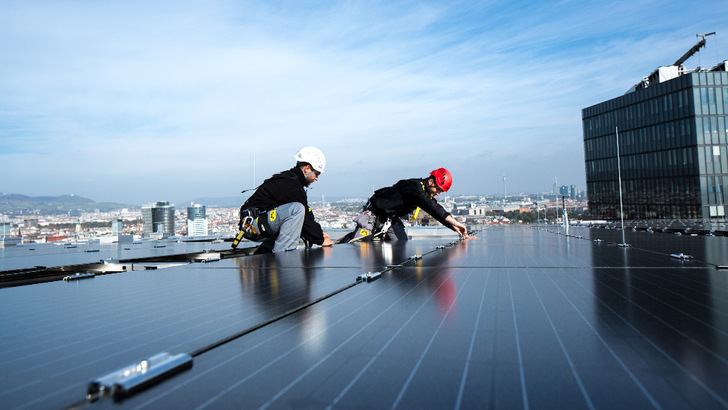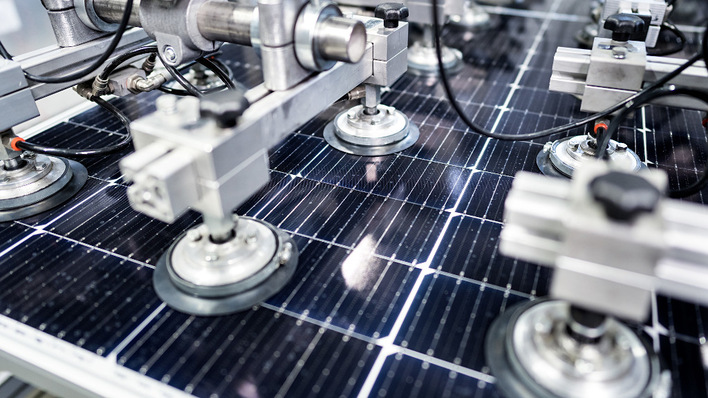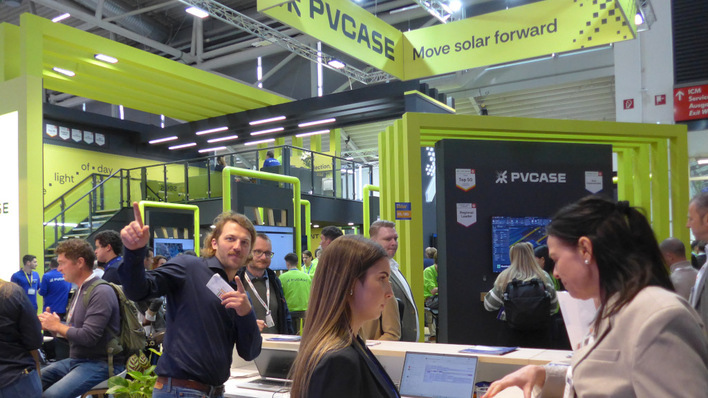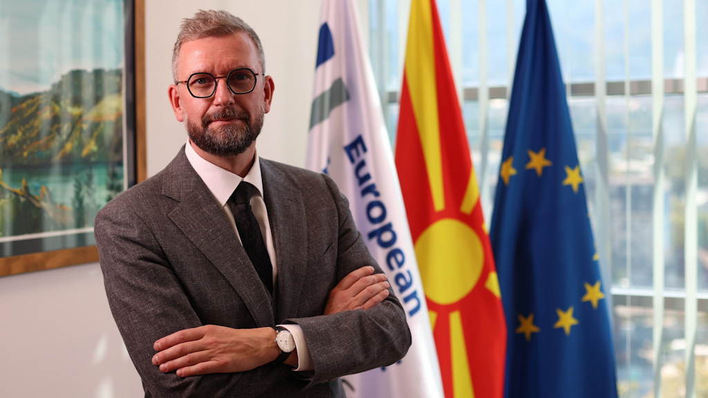The figures are not yet available. But both the industry representatives of PV Austria and the experts of the Climate and Energy Fund (KLIEN) assume that about one gigawatt of new photovoltaic systems were connected to the grid in Austria last year. This was announced by the association and KLINE at the spring meeting of the solar industry in Vienna.
Good mood in the industry
The mood is correspondingly good. After all, 400 installers, planners and scientists came to Vienna to learn about the latest developments in the solar industry. In addition, 150 participants followed the conference online. The industry is currently experiencing a boom, as Herbert Paierl, President of PV Austria, emphasises. "But we still have some construction sites", he warns against too much euphoria. The Renewable Energy Expansion Act (EAG) is in force and being implemented. But there is still room for improvement. Paierl points to the tenders, which do not work under the current model. After all, in the first round, half of the tendered quantity remained unused.
Removal of value-added tax must come
But further improvements are also needed for roof systems. Here Paierl has his eye on the proposal to abolish VAT on new photovoltaic systems. Federal Energy and Environment Minister Leonore Gewessler confirms that her ministry has taken up the proposal and that the corresponding regulation is now in the hands of the Ministry of Finance.
Building plants even without subsidies
However, she also points out that there are now as many subsidies for photovoltaics each year as there were in the years 2015 to 2021 combined. Here Bernd Vogel, Managing Director of KLIEN, pleads not to always wait for the subsidies. The payback period for photovoltaics without subsidies is currently 6.5 to seven years, he says.
See also: 24.5 megawatt floating PV plant completed in Austria
If the solar industry and customers are annoyed by bulky or missing subsidy conditions, they should just implement the projects without subsidies. "Maybe we should go down such paths slowly and say we'll do it without support," Vogel says. "We should also not promote the technology forever, but also discuss scenarios on how we can get the projects off the ground even without funding."
Funded projects must be implemented
But so far the funding is still in place and Leonore Gewessler emphasises that it has been extended again to 600 million euros for 2023. "We talk a lot about funding. Last year, we also subsidised more than two gigawatts of new capacity. But when it comes to implementation, we also have to talk about how to get land, how to activate how the roofs, how it looks in the grid, how it looks in the workforce, how the supply chains look," says Gewessler. "All this cannot be solved by the ministry alone." He adds that the ministry is doing its part to solve the problems. Gewessler points out, for example, that the training profiles nationwide are being adapted so that the solar industry has more workers available.
Federal states must follow suit
She also refers to the Renewable Energy Expansion Acceleration Act, which is currently being drafted to shorten the path to approval. In future, there will be only one authority through which everything will be handled. But the federal states must also play their part. "Because we need the land and we need streamlined and efficient procedures," Gewessler emphasises. The Länder must make this possible.
Also interesting: Fronius investing hugely in expanding production
Here the differences are still very great. While Vienna has launched a solar power offensive, some of the federal states are not yet ready. Paierl refers to the unsatisfactory designation of areas for solar parks in some Länder. Here, however, the industry is also called upon. "If you can exploit the land monopoly in such a way that the land price skyrockets with zoning, we have to take countermeasures," says Paierl.
Proactively expand networks
One of the tightest bottlenecks at present, however, is grid access. Although there are now clearer rules here and pricing is also fixed. But the grid operators also have to make their systems fit for the conversion of supply from centralised large-scale power plants to decentralised generation units. "A lot of money is needed for this and we have to talk about financing," says Herbert Paierl. He demands that grid operators not only plan grid expansion to respond to the current demand for connecting solar plants. Rather, they should plan the expansion and upgrading further in advance. (su/mfo)









